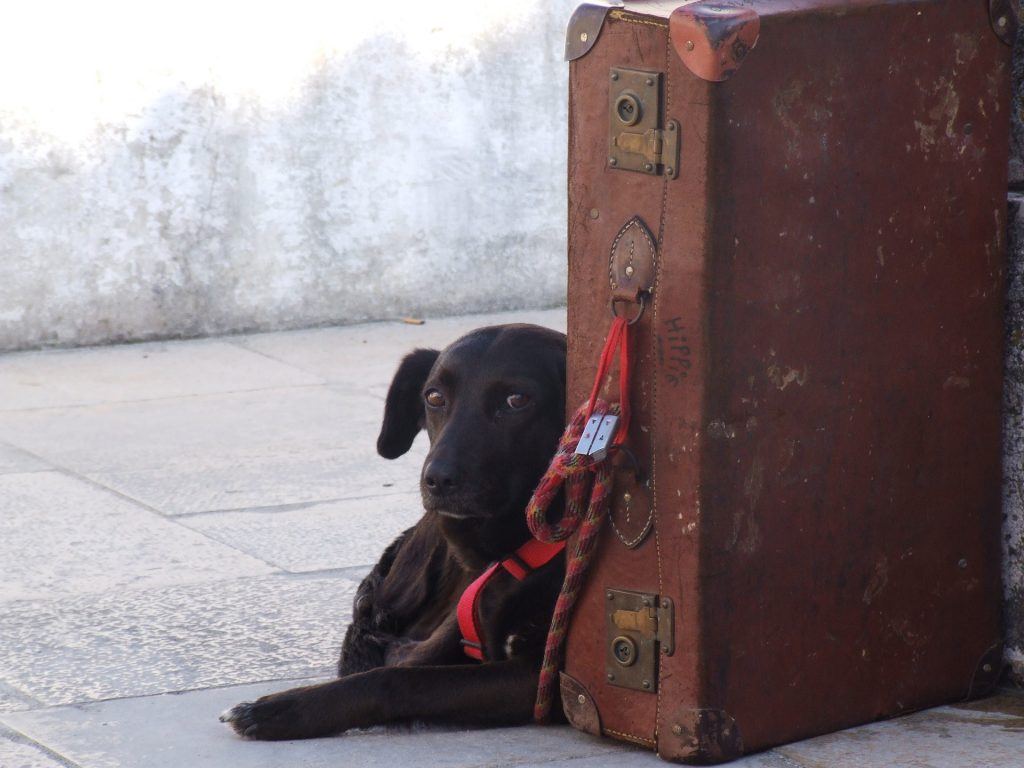Taking a dog on holiday can be done, if you plan and know all the regulations you need to follow for leaving and coming home depending on where you are travelling to. Our collaborative post has some tips and advice you may find useful.
No one likes to leave their four-legged friends behind when they go on holiday, but how easy is it to take your dog abroad? As we are seriously considering adding a puppy/dog to our household in the next year or two, and we look at what that entails and the pros and cons, as well as who looks after them if we go away, or whether we would plan our holidays and take a dog with us, we are joining Cottages in Northumberland, who offer dog friendly Cottages in Beadnell, as they delve into the issue of facing Brits taking their furry-friends abroad.

What owners need to consider
While we’re used to obeying rules and regulations, and are well-aware of the associated costs when we travel abroad ourselves, travelling abroad with your dog requires much more preparation and an even bigger budget. Taking a dog on holiday is not a task to be taken lightly but if you are rigorous about what needs to be done, you can safely take your beloved canine friend with you to enjoy your holiday together.
From arranging microchipping, vaccinations and pet passports with your vet, to organising all the necessary transportation, this guide is here to help you plan your future, pet-friendly holidays.
Microchipping
As loving dog owners, we’re sure you have this one sorted, but wherever your dog may be travelling this year, it’s vital that they are microchipped for identification purposes. This can set you back around £20 and should be done before the rabies vaccination, so that your vet can record the unique microchip number on your dog’s pet passport application form.
Rabies vaccinations
Spread love, not diseases! All dogs must be vaccinated against rabies before travelling to another EU country or returning to the UK You must wait 21 days until after the vaccination before your dog can travel, or return, to the UK from another EU or non-EU country. Dogs entering from a non-EU country will also need to undergo a blood test before they can be granted entry into the UK. Your pet may be put into quarantine for up to four months if you fail to follow these rules and may even be refused entry if you are travelling by sea.
While you’re at the vets getting vaccinations crossed off on your to-do list, make sure you also record these important details:
Microchip number, the date it was inserted and where it is located on your dog. Date of birth and age. Vaccine product name. Vaccination date. Batch number.
Pet passports
Once your dog has been microchipped and has had a rabies vaccination, your vet will issue you with a pet passport for a fee of £60. As cute as they may be, pet passports are very important as they provide a full list of the different treatments your pet has had. Pet passports remain valid as along as your pet continues to meet the country’s entry requirements.
Transportation
When you have your pet’s travel documents, it’s time to tackle transportation. This is a tricky one because there are only a small number of approved transport companies and routes which can be used to bring dogs into the country, so you’ll have to choose wisely. It also isn’t unusual for companies to request a statement from your vet to confirm your dog is fit to travel, so be prepared for this and check their requirements before you travel.
You’ll also need something for transporting your dog. Unfortunately, travelling abroad isn’t just a case of getting your dog in the car, you’ll need an authorised pet carrier (a decent one starts at around £40 and must be large enough for them to stand up and turn around in) to transport them safely and securely.
Your dog’s needs
The final and perhaps most important thing to consider when thinking about taking a dog on holiday is your dog’s needs:
- Factor in plenty of comfort breaks to your journey where your dog can relieve themselves.
- Stop them becoming a hot dog(!) by packing plenty of water and a cooling mat to relax on when the temperature rises.
- Prepare them for the trip by slightly reducing their daily food intake and feeding them as early as you can on your day of departure. Also pack plenty of your regular dog food brand as it is unlikely you’ll be able to find it abroad.
- Although we love to have our pets with us wherever we go, leaving them in a kennel or taking them abroad can prove costly and time-consuming. For a more relaxing holiday, make sure you plan and keep a checklist. Alternatively, you could consider a long staycation or weekend away somewhere in the UK.

